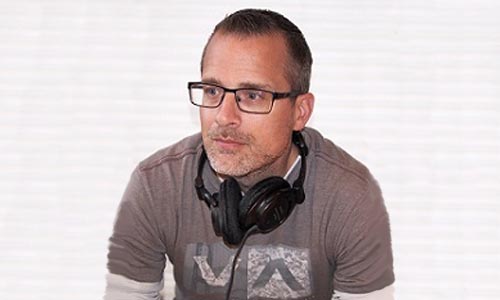(WASHINGTON) — U.S. Secretary of State Antony Blinken on Sunday directly urged Russia to free an American journalist who was detained last week on suspicion of espionage — which the White House has called “ridiculous.”
The State Department said Blinken had spoken with his Russian counterpart, Sergey Lavrov, on Sunday. However, readouts from each side show how sharply the countries are at odds over Evan Gershkovich, whose arrest adds to the list of high-profile detentions of Americans in Russia — some of which have been used as bargaining chips in protracted and controversial negotiations.
Blinken “conveyed the United States’ grave concern over Russia’s unacceptable detention of a U.S. citizen journalist … [and] called for his immediate release,” State Department spokesperson Vedant Patel said in a statement.
Blinken “further urged the Kremlin to immediately release wrongfully detained U.S. citizen Paul Whelan,” Patel said, referring to a former Marine and corporate security employee imprisoned in Russia for four years on an espionage conviction he also denies.
Russia’s description of Blinken’s call with Lavrov suggests there is likely to be little progress on the matter anytime soon.
Lavrov insisted to Blinken that Gershkovich was “taken red-handed,” Russian officials said, and noted to Blinken “the need to respect the decisions of the Russian authorities.”
“The inadmissibility of officials in Washington and Western media escalating the hype with the clear intention of giving this case a political colouring was emphasised,” Russian officials said.
Rep. Mike Turner, the House Intelligence Committee chairman, said Sunday that the Biden administration should keep pushing.
“Certainly, the Biden administration should continue its efforts to negotiate and to try to get the release of this journalist,” Turner, R-Ohio, said on CNN’s “State of the Union.” “But, overall, people should be very cautious about staying in Russia.”
Turner contended that Russia “is acting as an illegal state at this point” and posed too great a risk to Americans.
“We gave people notice that they should get out of Russia. And, certainly, I would continue to encourage people to do so,” he said.
Gershkovich was initially detained in Ekaterinburg, Russia’s Federal Security Service said Thursday. The intelligence agency has accused Gershkovich of spying and collecting “state secrets.”
He has pleaded not guilty. He faces up to 20 years in prison if convicted in a case that is marked “top secret.”
A foreign correspondent for The Wall Street Journal, the 31-year-old Gershkovich “fell in love with Russia—its language, the people he chatted with for hours in regional capitals, the punk bands he hung out with at Moscow dive bars,” according to a Journal profile of him published Friday.
The Journal reported then that Gershkovich was detained at Lefortovo prison and had not been able to see an attorney for him hired by the paper, which “vehemently denies the allegations.”
Asked Friday about Gershkovich’s case and his message to Russia, President Joe Biden said: “Let him go.”
But how to handle what some call “hostage taking” can be much trickier to deal with than issuing simple warnings and pleas, experts told ABC News. That’s especially true when political pressure builds at home to free an individual — versus the broader national interest in not giving in to the “leverage” critics say Russia is seeking.
What’s more, the process of bringing back an American detained overseas can take months or even years.
“Given the cases we’ve seen unfold over the past several years, there are certainly reasons to imagine that this will be a case of hostage diplomacy,” Dartmouth College foreign policy fellow Danielle Gilbert said.
She said that “the first thing that I am watching for will be whether or not the State Department gives Evan that designation — whether they designate him as wrongfully detained. And that decision could come tomorrow or it could come months from now.”
It will “likely be several days” before the U.S. will get consular access, Petal, the State Department spokesperson, told reporters on Thursday.
At a separate Thursday briefing, White House press secretary Jean-Pierre declined to characterize Gershkovich’s detention as a hostage situation when asked by ABC News’ Stephanie Ramos.
“I mean, he’s being wrong — he’s being detained and, and we have been very clear, there’s, you know, there’s no reason to believe that those charges are accurate, the espionage are accurate,” she said.
The White House has said it is in contact with the Journal and Gershkovich’s family.
ABC News’ Shannon K. Crawford, Alexandra Hutzler, Teresa Mettela and Natalia Shumskaia contributed to this report.
Copyright © 2023, ABC Audio. All rights reserved.





